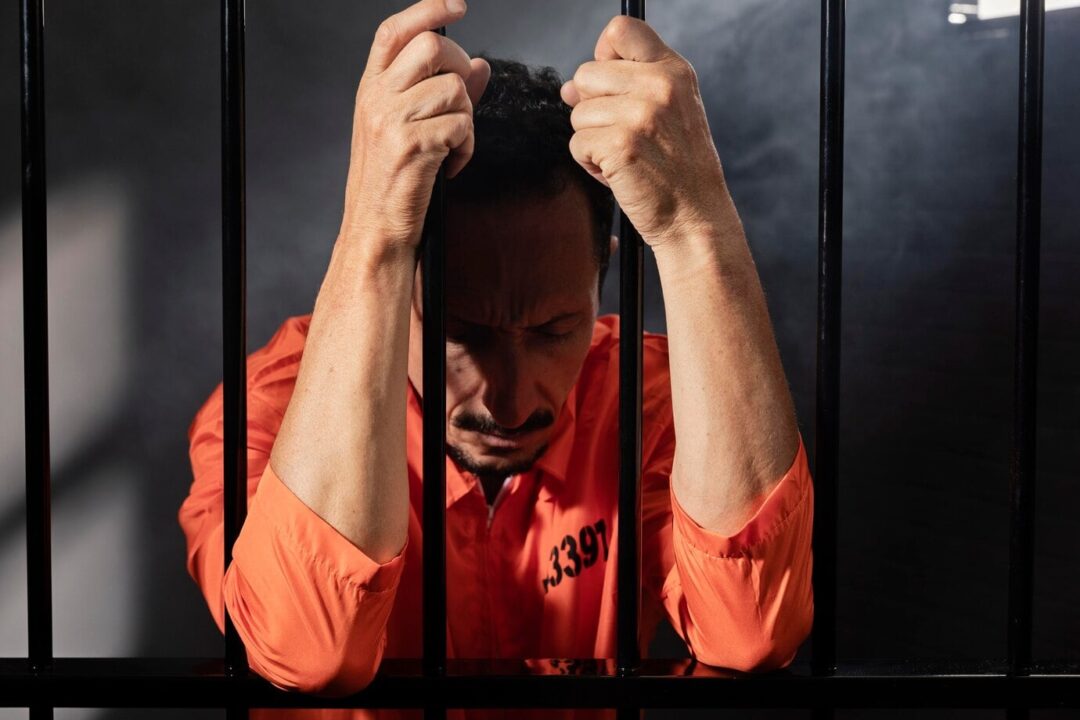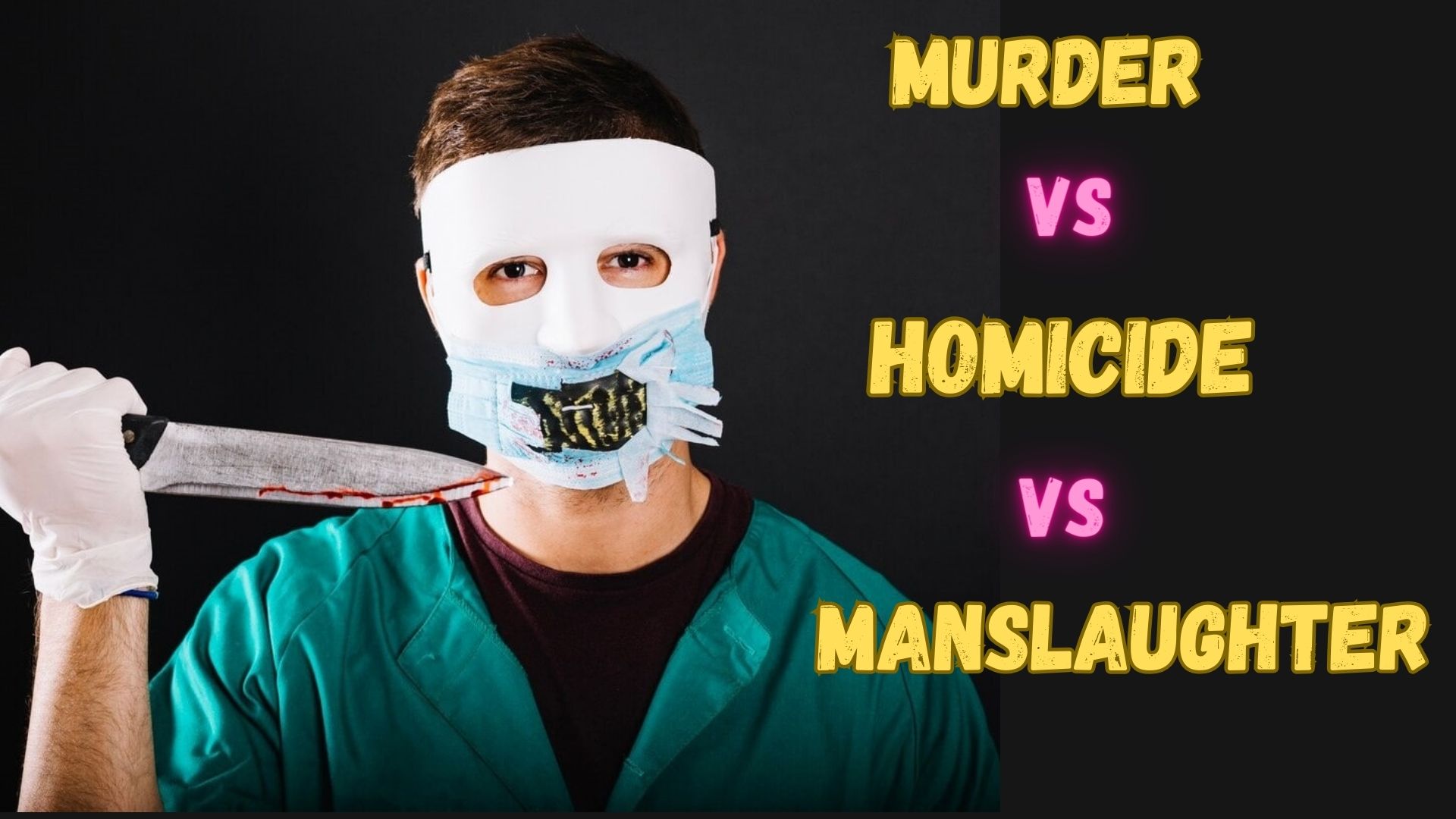The key difference between Murder, Homicide and Manslaughter lies in a deep understanding of human emotions and the complexities of life and death. Murder is the intentional and unlawful killing of another human being with bad intentions. Homicide is a broader term that surrounds any instance where one person causes the death of another while Manslaughter refers to the unlawful killing of any person without the element of malice aforethought present in murder.
Murder is when someone kills another person on purpose, against the law, and with bad intentions. This means that the person who did the crime wants to kill the victim on purpose, either ahead of time or in the heat of the moment with no care for life at all. There are different degrees of murder based on things like intent, motivation, and the presence of aggravating events. First-degree murder is the worst crime that can happen.
Homicide is a more general term for any situation in which one person kills another. Criminal purpose or hatred is not always required for homicide, which is different from murder. Homicide just means killing someone, no matter what happened. Homicides can be planned killings or deaths that happen by mistake. They can also be acts of self-defense or the use of deadly force by police in some cases.
Manslaughter is the illegal killing of another person without the evil intent that is required for murder. It usually doesn’t involve planning or wanting to kill someone, but the person who does it still ends up killing someone. Manslaughter can be broken down even further into two groups: choice and forced.
Murder vs Homicide vs Manslaughter
Here’s a differentiation chart presented in table form, with a humanized tone:
| Aspect | Murder | Homicide | Manslaughter |
| Intent | Due to bad intentions and malicious behavior | Can range from on purpose to by accident | Not planning ahead or having bad intentions |
| Emotions | Usually caused by anger, greed, or hate | Range from anger to sadness to regret | Was full of regret and unexpected results |
| Legal Implications | carries harsh punishments, such as the death penalty or life in prison | Results depend on the situation and can lead to different levels of punishment. | Usually gets lighter penalties than murder, but it depends on the situation. |
| Societal Impact | Leaves a track of sadness and wrongdoing behind | Brings up issues of responsibility and fairness | Shows how fragile decisions are and how important it is to be kind. |
| Examples | Killings on purpose, killings in a series, and contract killings | Cases of self-defense, accidents, and vehicle murder | Accidental deaths caused by carelessness, cases of accidental killing |
Murder

Murder is when one person consciously kills another person. It’s a very serious crime and it causes a lot of pain and sorrow to the victim’s family and friends. The person who commits murder does it on purpose, with the intention of harming or killing someone else. It’s a tragic and heartbreaking event that leaves deep scars on everyone involved.
Examples of Murder
Here are some simple examples of murder.
- Planned Killing: When someone plans to hurt or kill someone else, this is called planned killing. They may wait until the right time, like when the person is alone or weak, to carry out their plan. A planned murder is what this is.
- Jealous Rage: People who are jealous and angry because their partner spends time with someone else are said to have jealous rage. They might do something terrible when they are angry that hurts or kills their partner. This is an example of murder that was caused by strong feelings like anger.
- Robbery Gone Wrong: A robbery gone wrong is when someone plans to steal from someone, but things get out of hand, and they hurt or kill the person they’re stealing. There is no doubt that they meant to kill someone, but what they did killed someone, which is called murder.
Degrees of Murder
There are different degrees of murder in the eyes of the law, which represent how serious the crime is. Here’s a simple explanation.
- First-Degree Murder: This is the worst kind of murder. It happens when someone really wants to kill someone else. It’s like when someone carefully thinks about hurting or killing someone, and then carries out their plan.
- Second-Degree Murder: This is still a very serious crime, but not intentional or planned as first-degree murder. It’s like when someone kills another person in a moment of anger or without thinking it through earlier.
- Third-Degree Murder: This is a type of murder that is legal in some places. Like second-degree murder, but the situations may be different or the motives may not be as bad.
Penalties of Murder

When someone is found guilty of murder, there are serious consequences they have to face. Here’s a simple explanation of the penalties.
- Life in Prison: Someone who is found guilty of murder could spend the rest of their life in jail. This means they won’t ever be free to leave and will have to stay in prison until they die.
- Death Penalty: The death penalty is a more severe form of punishment for murder that is used in certain areas. This indicates that the murderer has been found guilty and condemned to death by hanging.
Homicide
Homicide occurs when one person causes the death of another person. It may happen for a variety of reasons, including self-defense or an accident. Unlike murder, which is purposeful and planned, homicide refers to a larger variety of scenarios in which someone’s actions cause the death of another person. It is a phrase that refers to the act of murdering someone, regardless of the circumstances. Homicide is a terrible and tragic act that affects many people’s lives.
Example of Homicide
Here are some simple examples of homicide.
- Accidental Car Crash: Assume someone is driving their car and accidentally strikes a person crossing the street. Even if they had no intention to harm someone and their actions resulted in someone’s death. This is considered a homicide.
- Self-Defense: Suppose someone is attacked by another person and must protect themselves. If the attacker is injured or killed in the process, it’s still considered a homicide, it’s justified because it was done to protect oneself.
- Medical Mistake: Sometimes doctors or nurses make mistakes during surgery or treatment that result in a patient’s death. Even if they did not intend for the patient to die, their actions resulted in his death, making it a form of homicide.
Penalties of Homicide
When someone is found guilty of homicide, there are consequences they must face.
- Prison Time: One potential punishment for homicide is imprisonment. This implies that the individual will have to remain in a specific facility designated for persons who disobey the law. They will not be permitted to leave until they have completed their sentence.
- Probation: Instead of being sentenced to prison, a person may be granted probation. This means they must obey specific regulations and have frequent check-ins with a probation officer. They’ll be strictly monitored to ensure they don’t breach any other laws.
Manslaughter
Manslaughter occurs when someone accidentally causes the death of another individual. Unlike murder, where the person plans to harm or kill someone, manslaughter happens accidentally or without the intention to cause harm. It may occur in situations when someone behaves foolishly or irresponsibly, resulting to someone’s death. Manslaughter is a terrible crime, but unlike murder, there is no intent to cause harm. It’s a devastating incident that may be caused by a mistake or a moment of carelessness, yet it still has consequences for everybody concerned.
Voluntary Manslaughter
Voluntary manslaughter occurs when someone kills another person without intending to do so, but is driven by strong emotions such as anger or fear. It isn’t planned like murder.
Involuntary Manslaughter
Involuntary manslaughter is when someone unintentionally causes another person’s death due to negligence or carelessness. It’s not on intention, but their actions or lack to behave appropriately result in someone being injured or killed.
Vehicular Manslaughter
When someone drives carelessly or recklessly and causes someone to die, it is known as vehicular manslaughter. Even if it’s not their intent, their irresponsible driving causes someone to be killed in a car accident.
Examples of Manslaughter
Here are some simple examples of manslaughter.
- Texting While Driving: Imagine someone is driving and texting on their phone at the same time They hit someone who was crossing the street by mistake and killed them because they weren’t looking at the road. This is an example of manslaughter.
- Medical Negligence: Sometimes, doctors or nurses make mistakes during surgery or treatment that result in a patient’s death. Even though they didn’t mean to harm the patient, their actions or negligence lead to someone losing their life, which is considered manslaughter.
- Accidental Shooting: Let’s say someone is handling a gun and accidentally shoots someone nearby, causing their death. This isn’t done on purpose, but their careless handling of the firearm leads to a tragic outcome, resulting in manslaughter charges.
Penalties of Manslaughter
When someone is found guilty of manslaughter, there are consequences they have to face. Here’s a simple explanation of the penalties
- Prison Time: One possible penalty for manslaughter is going to prison. This means the person will have to stay in a special place designed for people who break the law. They won’t be allowed to leave until they’ve served their sentence.
- Probation: Sometimes, instead of going to prison, the person might get probation. This means they have to follow certain rules and check in with a probation officer regularly. They’ll be watched closely to make sure they don’t break any more laws.
Similarities between Between Murder, Homicide and Manslaughter.
While murder, homicide, and manslaughter are distinct in their legal definitions, they share commonalities that reflect the complexities of human behavior and the consequences of actions
Loss of Life: All three involve sad human deaths. Each incident causes massive disruption to people and communities, leaving loss, sadness, and frequently unanswered questions.
Legal Scrutiny: All three offenses are thoroughly investigated to establish guilt and punishment. Courts determine guilt and punishment based on purpose, planning, and mitigating circumstances.
Impact on Families: Murder, homicide, and manslaughter cause immense pain and misery to the victim’s family and friends. Loved ones must deal with sorrow and healing after their sudden loss.
Social Stigma: Murderers, homicides, and manslaughters are typically shunned by their communities. Their acts damage their reputations and have long-term effects beyond judicial action.
Legal Effects: All three offenses have serious legal implications, however fines vary. Society condemns activities that kill, therefore criminals may be imprisoned, probationed, or otherwise punished.
Conclusion
The distinction between murder, homicide, and manslaughter shows human morality and justice’s complexity. All include terrible deaths, but purpose, circumstances, and legal ramifications differ. Premeditated murder represents human evil at its worst. Homicide, a larger word, comprises a range of activities that kill, reflecting human relationships and conflicts. While manslaughter, tainted with remorse and unforeseen repercussions, shows the fragility of human decision-making and the complexity of culpability. Law and morality are complicated, therefore understanding these contrasts is essential.

